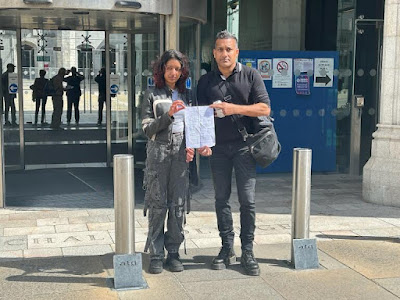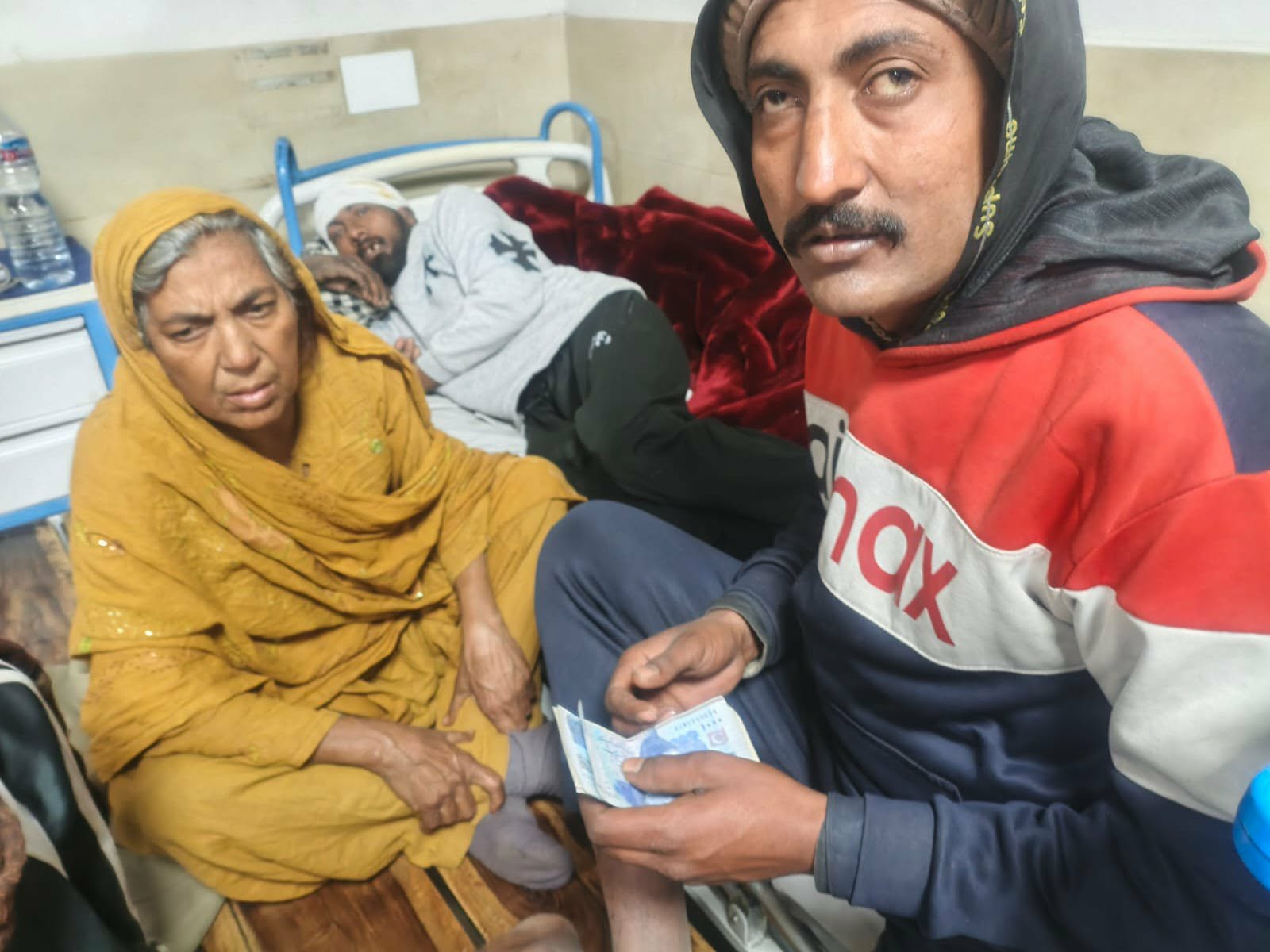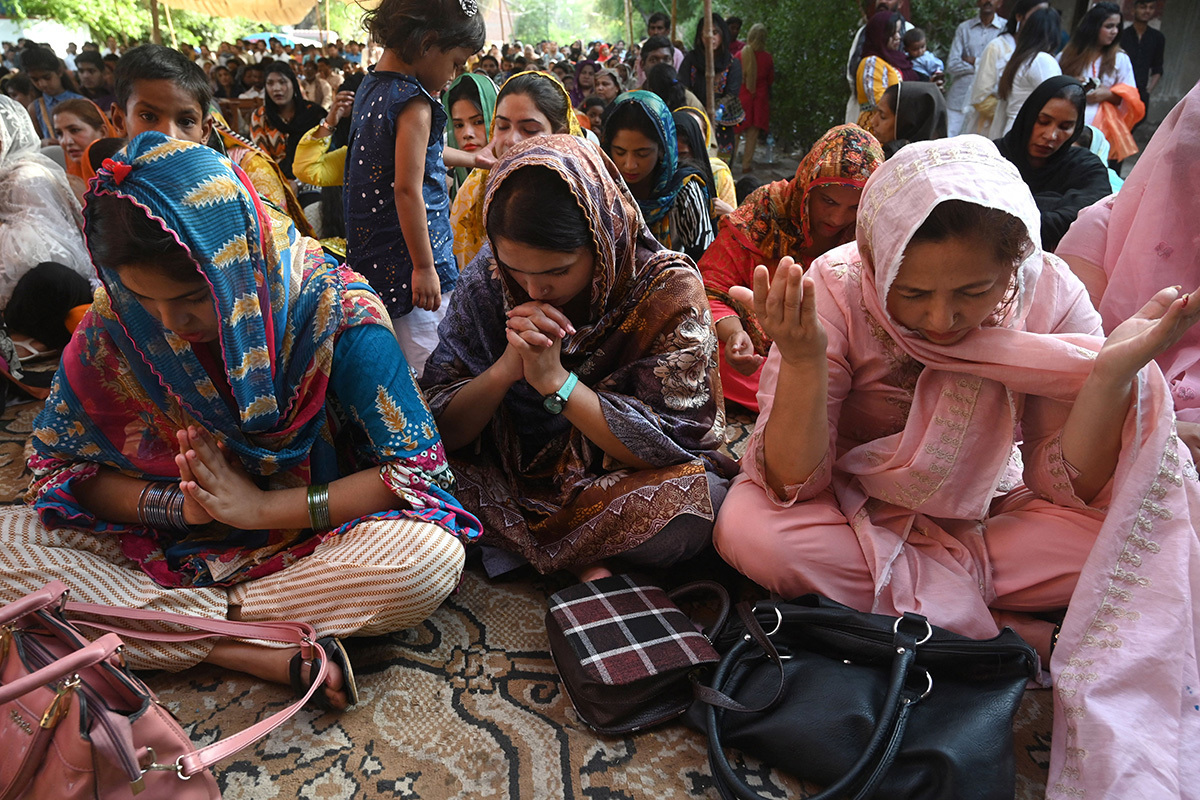UK: Wilson Chowdhry and his daughter Hannah Chowdhry taking the lead in the first meeting with senior Aberdeen council officers, advocating f
Washington DC: July 18, 2017. (PCP) Mr. Jeffrey Imm, Founder of Responsible for Equality And Liberty (R.E.A.L.) welcomes and respects all those who need and deserve shelter from persecution, violence, war, and hate. R.E.A.L. recognizes the need for a global refugee response and one within the United States of America as well. The analysis in this report is simply to provide important context on a recent Pew Reseach Center report (July 12, 2017), which R.E.A.L. believes provides a misleading perception of statistical information, when it comes to Christian religious minority refugees.
R.E.A.L. respects the need of all refugees of all faiths (including those are not part of any religion) for their essential human rights of security. The July 12, 2017 Pew Research Center report distinguishes between Christian and Muslim refugees in its analysis. R.E.A.L. respects the need for refugees of all faith groups and identity groups and their need for safety and security, as we respect all those who seek safety and security for their families, their communities, and their nations.
The Pew Research Center's July 12, 2017 report provides a statistical analysis titled: "In first months of Trump presidency, Christians account for growing share of U.S. refugee arrivals." This report uses accurate statisics, but provides this information without context, in a way that is misleading. More importantly, such misleading information prevents the U.S. public from recognizing the continuing problem and challenge for Christian religious minority refugees in non-secular nations. This Pew Research Center report was quoted by the Washington Examiner, which also missed the important context left out by this report.
The Pew Center analysis conclusions that there is has been a significant "new" change in Christian refugees is not truly supported by the facts, which can be seen at the Refugee Processing Center (RPC) website that the Pew Research Center references. From the previous administration's period of office (1/21/2009 to 1/20/2017), the RPC database shows the U.S. accepting 239,518 Christian refugees and 194,141 Muslim refugees. A large portion of the Christian refugee population (then and now) has been with the Democratic Republic of Congo (DRC), a Christian majority nation; this was also the case in the previous administration. There is a significantly diminished impact on Christian minority religious refugees seeking to obtain refuge and security in the U.S. from non-secular, theocratic areas.
R.E.A.L.'s interest in providing context about the Pew Reseach Center report is not to "take sides" with one refugee group versus another, but to provide important context essential to understanding unique struggles of some religious minority refugee groups that are regularly ignored. R.E.A.L. also seeks to provide information on how the average person can examine such U.S. refugee statistical information for themselves, to inform yourself without being dependent on someone else (Pew Research Center, R.E.A.L., or any other other group) to "interpret" the facts for you. R.E.A.L. believes that the public should have the ability to know how to gather such facts for themselves, so when they are told of plans or reports in "changes" in U.S. refugee policies, the public can see what the statistical information is with their own eyes, not someone else's opinion of it.
Religious minority refugees have a unique problem, for religious minorities of all kinds, Christians, Muslims, Hindu, and other faith groups. Religious minority refugees in non-secular nations face a unique, institutionalized type of persecution, which is more than individual war zones and conflict areas.
For religious minorities in non-secular theocratic nations, where there is religious majority persecution through the national establishment and institutions, such religious minorities are not simply threatened by "extremists," conflict areas, and war zones.
For those religious minorities, the entire, non-secular, theocratic nation becomes a conflict area. Their "war zone" stretches from border to border, in every town, village, hamlet, and the conflict period is every hour of every day. There is no cease fire, no truce, on the endless threats to their liberty, security, and dignity.
The security threat to religious minorities is not consistently taken seriously by organizations like the U.N., the UNHCR, and other refugee groups, whose primary measurement of refugee status is the degree of violence (as in conflict zones) for any given refugee. As R.E.A.L. has seen too frequently, the idea that a religious minority is threatened with death, beaten, bones broken, shot, stabbed, raped by an extremist among the religious majority, is viewed too frequently with a sense of detachment by refugee status determination evaluators, who are looking for a definition of a "conflict zone" based on its definition in a secular nation.
For religious minorities in non-secular, theocratic nations, every interaction with the theocratic establishment and institutions represents a potential danger to the security, lives, and future.
The threat to such religious minorities in such theocracy nations is not just a singular tyrant and its security forces, but also the tyranny of a theocractic majority of the population, which at any time can decide to reach out and persecute the religious minority at will.
The Pew Research Center's July 12, 2017 report intends to offer an analysis of changes in refugees accepted by the U.S., since the beginning of the new U.S. administration. The Pew report gives the surface appearance that Christians refugees are now being given priority treatment over Muslim refugees. R.E.A.L. believes that Pew offers a misleading conclusion, that ignores the historical refugee figures, the significant, continuing impact of Christian-majority countries with dictators and war zones, as a source of Christian refugees to the U.S.
Pew's conclusions also ignore the ongoing struggle of Christian religious minority refugees, especially in non-secular and theocratic parts of the Greater Middle East and Southeast Asia. It fails to consider shocking statistics in failure of the U.S. to provide refugee support for Christian minorities in some countries, like Pakistan, where Christian minorities face routine and severe persecution from extremists and institutional oppression (including use of a "blasphemy" law.)
Those looking at the summary of this will not grasp the nuance and overall challenge that remains for Christian minority refugees, especially those fleeing from persecution in nations other than Iraq or Syria with "known" conflict zones associated with specific regions involved in war and violence. An important reason why the statistical appearance of Christian refugees appears to be rising in the U.S. is due to the relative greater ease in "vetting" refugees from the Congo (Christian majority nation), Ukraine (Christian majority nation), Burma/Myanmar, etc. So for a large number of Christian religious minority refugees, their problem continues to remain in terms of seeking protection from non-Christian majority religious extremist persecution.
For many of those minority Christians in the Greater Middle East and Southeast Asia, the refugee struggles of Christian religious minority refugees remain as great as ever. The Pew Research Center report fails to explain this issue, while seeking to demonstrate a "new" trend that is largely consistent with previous administrations. Without further context, the Pew Research Center's report provides a misleading appearance that the new administration has suddenly given priority to Christian refugees over Muslim refugees. The reality is that little has changed historically, and especially for most Christian minority refugees, whose struggle is a consistent challenge.
In terms of accepting refugees from the world, the U.S. accepts refugees from a number of nations have refugee problems, particularly in Africa, where ongoing wars and conflicts have devastated people of every faith. This is particularly the case of the Democratic Republic of Congo (DRC), which is a Christian majority country. More refugees have been accepted not just recently, but for years, from the Congo, as there is less of a struggle in vetting and determining links to extremist groups.
The Pew Research Center suggests this is some new focus on giving priority to Christian refugees. But that is misleading. The Democratic Republic of the Congo (DRC) is a majority Christian country. So those refugees fleeing war and violence (standard conflict zone measurements for refugees) in the Congo will be predominantly Christian.
This makes the number of Christian refugees accepted in the U.S. seem higher statistically. But for those Christian minorities struggling under religious persecution in many other countries, particularly those countries tolerating religious extremist views against them in the Greater Middle East and Southeast Asia, such Christian refugees continue to significant struggles in gaining refugee access to the U.S.
The Pew report and Washington Examiner fail to understand and report this issue. It is not a small differentiator, it is a very significant one. In fact, when this type of issue is taken as a filter, the statistical number of apparent Christian refugees, especially for Christian religious minorities, are significantly under-represented. R.E.A.L. has provided statistical analysis from this same report, which anyone in the public has access to, not just the Pew Research Center. R.E.A.L. also provides instructions to the public on how to research this issue yourself, so that you can come up with your own conclusions.
R.E.A.L. has first-hand knowledge of ongoing threat threats, including ongoing threats to Pakistan Christian minorities, which have faced such struggles for many years, and which are vastly under-represented among refugees to the U.S., at an astounding and shocking level.
On July 13, 2017, the day after the Pew Research Center report claiming how the U.S. is now accepting so many more Christian refugees, a Christian minority floor sweeper was arrested in Pakistan's Gujrat. The Pakistan Christian minority man was arrested by a member of the religio-political party Tehreek-e-Tuhafaz Islam Pakistan (TTIP), who claimed that the floor sweeper committed "blasphemy" in a conversation. The Pakistan Christian man was arrested, and now faces the theocractic institutional threats of the Pakistan "blasphemy" law, which can lead to a death sentence.
Based on 20th century secular thinking, the idea of this Pakistan Christian minority man living in a dangerous "conflict zone" does not make sense to U.N. and to too many U.S. refugee organizations. But this is the reality for religious minorities. At any moment of any day, their freedom, security and safety can be abruptly taken away from a theocratic establishment, institutions, and extremists that do not share consistent respect for our universal human rights under Article 18 of the Universal Declaration of Human Rights for freedom of religion and conscience for all.
The reality for religious minorities seeking refugee protection is that the non-secular, theocratic, nations like Pakistan are conflict zones. Not just some parts, not some neighborhoods.
So the need for U.S. and global refugee organizations to understand and deal with the continuous threat to religious minority refugees is essential, but it is not taken seriously enough. We are grateful for the efforts made on the few such refugees who are taken in by the U.S., but we must not mislead ourselves on the statistics of these and continuing reality that religious minority refugees, especially Christian minority refugees, are seeing the change that they desperately need for protection of their human rights, security, and dignity. It would be tragically inaccurate for those who see the July 12, 2017 Pew Research Center report and think this issue is being substantively addressed by the U.S.
Despite what the July 12, 2017 Pew Research Center report would make the public believe, such Christian religious minorities still remain the vast minority of refugees to the U.S.
In the case of Pakistan, the situation for religious minority Christian refugees remains DIRE, and the inability of the U.S. to bring provide shelter to more than a handful of Pakistan Christian refugees is a tragedy and disgrace.
For the time period represented in the Pew Report (1/21/2017-6/30/2017), of the total 19,133 refugees, Pakistan Christans represented only 34 refugees.
That is THIRTY-FOUR Pakistan Christian refugees - total - out of over 19 thousand.
The U.S. must continue to review and reassess its policies in protection of religious minorities for people of all faiths, which must include all of those religious minorities being threatened, and must include Christian religious minorities.
You May Also Like
Sialkot: A 24-year-old Christian farm worker with an intellectual disability was brutally beaten by his Muslim employer in Sialkot for arriving lat
Faisalabad (January: Human Rights Focus Pakistan (HRFP) strongly condemns the brutal sexual assault of a six-year-old Christian girl, Shamaya Salee

"Trial of Pakistani Christian Nation" By Nazir S Bhatti
On demand of our readers, I have decided to release E-Book version of "Trial of Pakistani Christian Nation" on website of PCP which can also be viewed on website of Pakistan Christian Congress www.pakistanchristiancongress.org . You can read chapter wise by clicking tab on left handside of PDF format of E-Book.









